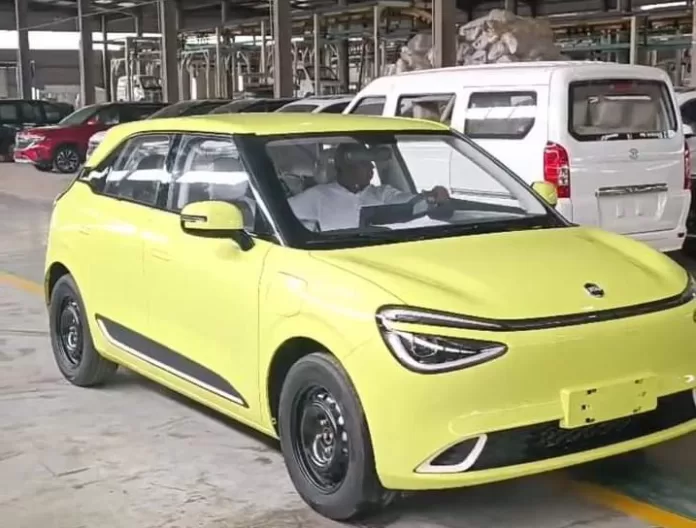
Innoson Vehicle Manufacturing Company (IVM) has launched its first locally manufactured electric vehicle. According to Cornel Osigwe, the company’s Head of Communications and Corporate Affairs, the electric vehicle is produced at their facility in Nnewi, Anambra State. He remarked, “I just test drove the first Innoson electric vehicle produced in Nnewi. This is just the beginning.”
Mr. Osigwe noted that this is the company’s first foray into electric vehicle (EV) production. However, information regarding the pricing, number of units manufactured, and the expected timeline for its commercial launch was not provided. According to the International Energy Agency (IEA), electric vehicles are vital for reducing carbon emissions in road transport, a sector that accounts for over 15% of global energy-related emissions.
In recent years, the sale of electric vehicles has surged, fueled by advancements in range, a broader selection of models, and improved performance. Passenger electric cars are gaining traction, with approximately 18% of new vehicles sold in 2023 being electric. Nevertheless, in numerous developing and emerging nations, sales have been sluggish due to the higher acquisition costs compared to traditional vehicles and inadequate charging infrastructure. Besides, the rise in petrol prices following the deregulation of the petroleum industry’s downstream sector could create investment opportunities in the EV market if charging costs prove cheaper than refueling petrol vehicles.
Nigeria’s Electric Vehicle Progress
Regarding Nigeria’s electric vehicle landscape, in 2021, the country launched its first locally assembled electric vehicle, the Hyundai Kona, manufactured by Stallion Motors. This achievement followed a pilot program initiated by the National Automotive Industry Design and Development Council (NADDC) in partnership with Stallion Group and other stakeholders, with a goal of establishing 100 solar-powered electric vehicle charging stations across Nigeria.
The introduction of the Hyundai Kona represented a significant advancement for Nigeria’s automotive sector, paving the way for new opportunities as the global community transitions away from petrol-powered vehicles in light of climate change and emission reduction efforts.
Challenges in electricity supply to support EV deployment in Nigeria remain. Despite Hyundai’s strides in electric vehicles, Nigeria struggles to generate sufficient electricity for its households and industries, producing only about 5,000 Megawatts, whereas the energy demand is approximately 40 terawatts.
The World Economic Forum (WEF) indicates that Nigeria is experiencing one of the highest levels of energy poverty worldwide. Only 25% of rural residents have access to electricity, with many relying on biomass and waste as their primary cooking energy source. Simultaneously, Nigeria contends with some of the costliest electricity in the world, averaging $0.52 per kilowatt-hour (kWh). A recent report from the International Energy Agency (IEA) highlighted that Nigerians depend on backup generators to fulfill about 40% of their electricity requirements.



